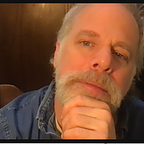If you are struggling with unwanted addictive behavior while also suffering from obsessive compulsive disorder, you may find the mix particularly aggravating. The combination of OCD with addiction to pornography, for example, can be powerful. I think of the OCD as similar to a comorbidity: it just makes the addiction more difficult to get control over.
Some people with OCD feel compelled to think, say or do things they find unpleasant or even revolting. You can hate pornography but be compelled to look at it. And the OCD can mean that you feel a need to look at the same images, which you may find repugnant, over and over again. The pornography itself is flooding your brain with dopamine, which acts as a chemical reward, and the addition of obsessive-compulsive thoughts and repetitive actions can get you stuck in a spiral that’s very hard to extract yourself from.
You may also have the mistaken belief that OCD itself can magically remove the pornography addiction. You may think, If I just look at this picture three more times, or think these specific thoughts, I’ll be cured. At that point you are essentially perceiving your OCD as your master, praying for the very thing that is keeping you trapped to free you. The OCD has taken over your ego, and you need to remove your sense of self from it. That is, you have to let your ego die, just a bit, to have any chance at freedom.
It is crucial to know that you are not your OCD; don’t ever say, “I am so OCD.” The OCD evolved in your brain to protect you in some way, perhaps from unwanted thoughts or from a life situation out of your control. It may have offered no real protection, but your subconscious mind doesn’t know that, and every time you engage with it, you are strengthening it. The stronger the OCD, the more difficult it will be to recover from addictions such as pornography.
I recommend that you start using affirmations, such as “I am not my OCD.” Remind yourself of this frequently. Picture yourself free of OCD. It’s important for your brain to have an image of what life would be like without OCD, so it has something to work towards. And when you imagine your life without OCD, dwell in the positive feelings that arise from having control over your own life.
There are 12-step support groups to help you rid yourself of pornography and other forms of sexual acting out. The two biggest are Sex and Love Addicts Anonymous (SLAA) and Sex Addicts Anonymous (SAA). Even if you don’t live in proximity to a meeting, they can be joined online. There are also therapists who specialize in sex addiction. The sooner you seek out these resources the sooner you can get your life back under control.
Treating a pornography addiction will be a lot more effective if you also go after your OCD. In addition to affirmations, you need to practice doing things — even little, innocuous things — without OCD. The more practice you give your brain, the more you strengthen neural paths free of OCD and weaken the old paths of compulsive behavior.
This is the same advice I’d give for any addiction that has OCD as its comorbidity. Treat both at the same time. Don’t fall back in the false comfort of one while seeking help for the other. Not only does the OCD make it harder to resist addictive behavior, but some addictions may support and strengthen the OCD.
It’s possible for you to manifest a life free of unwanted addictive behavior. If you can visualize it and taken actions toward it, it can be yours.
